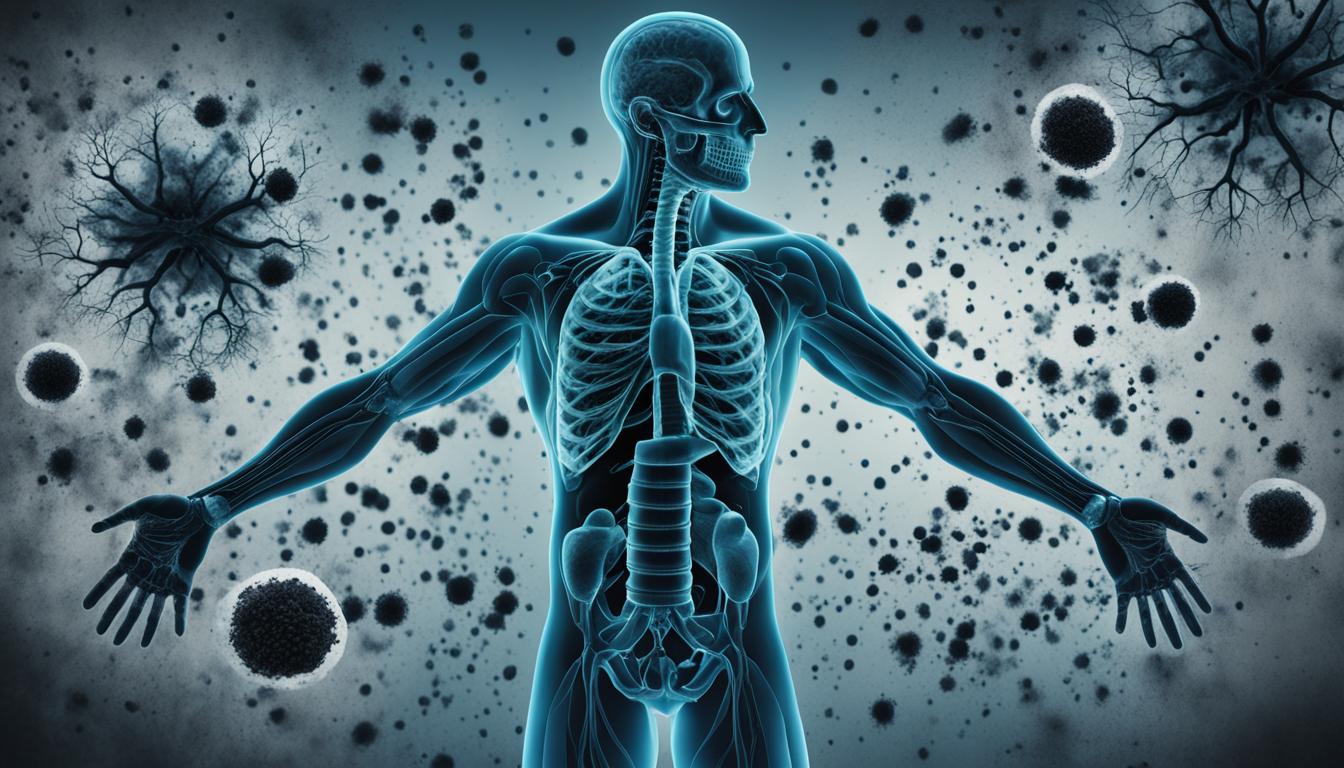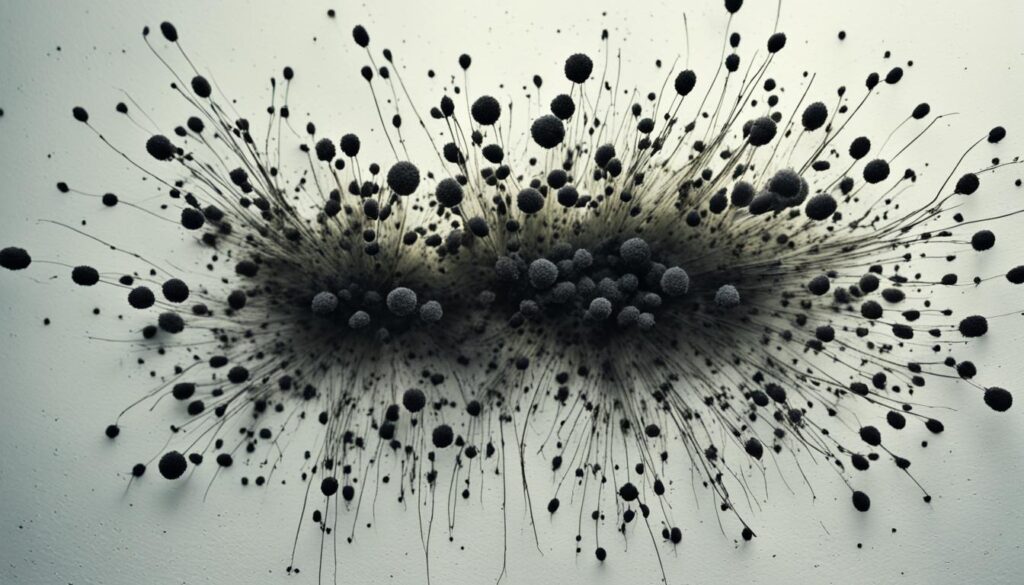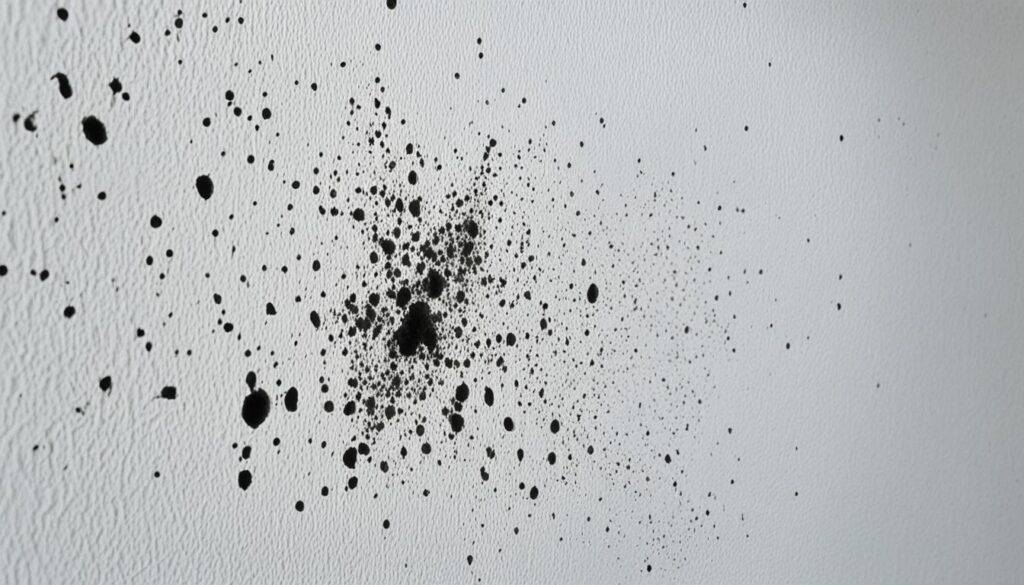
Black Mold Symptoms: Recognize the Signs Early
Black mold is a common household problem that can pose serious health risks if not recognized and addressed early on. It thrives in damp and humid environments, making it essential to be vigilant and proactive in identifying potential signs of its presence. By understanding the symptoms associated with black mold exposure, you can protect yourself and your loved ones from potential health complications.
Key Takeaways:
- Recognizing black mold symptoms early is crucial for maintaining a healthy living environment.
- Black mold can cause a range of physical and respiratory symptoms, including coughing, sneezing, and skin rashes.
- Regularly inspect your home for signs of mold, such as musty odors, discoloration on walls or ceilings, and water damage.
- If you suspect black mold presence, seek professional assistance for proper assessment and remediation.
- Prevent future mold growth by addressing leaks, improving ventilation, and maintaining proper humidity levels.
Understanding Black Mold and Its Health Effects
Black mold is a type of fungus that can have detrimental health effects when exposed to humans. In this section, we will explore the details of black mold and how it can impact your well-being. Understanding the characteristics and health effects of black mold is essential in recognizing and addressing potential symptoms.

| Characteristics of Black Mold | Health Effects |
|---|---|
|
|
Black mold tends to grow in areas with moisture, such as bathrooms, kitchens, or basements. Its harmful effects can vary from mild allergic reactions to more severe respiratory issues. If you suspect black mold in your home or workplace, it’s important to take appropriate measures to mitigate its presence and protect your health.
Common Black Mold Symptoms to Look Out For
Exposure to black mold can have detrimental effects on your health. Recognizing the common symptoms associated with black mold is crucial for early detection and prevention. Here are some of the most commonly reported physical and respiratory symptoms:
Physical Symptoms:
- Fatigue: Feeling constantly tired and lacking energy.
- Allergies: Developing allergic reactions, such as sneezing, itching, and watery eyes.
- Headaches: Experiencing frequent and persistent headaches.
- Skin Irritations: Developing rashes, hives, or other skin problems.
- Joint and Muscle Pain: Experiencing unexplained pain in the joints and muscles.
Respiratory Symptoms:
- Coughing: Persistent coughing that may be accompanied by phlegm or wheezing.
- Sneezing: Frequent sneezing, often accompanied by a runny or congested nose.
- Shortness of Breath: Difficulty breathing, especially during physical exertion.
- Throat Irritation: Scratchy or sore throat that persists over time.
- Chest Tightness: Feeling tightness or heaviness in the chest.
If you experience any of these symptoms and suspect black mold exposure, it is important to address the issue promptly to avoid further health complications. Consult with a professional mold remediation service to assess and eliminate the mold in your environment.
Remember, early recognition of these symptoms is essential for preventing potential health hazards.
Education and awareness are key to maintaining a safe and healthy living environment. Stay informed and take proactive measures to protect yourself and your loved ones from the harmful effects of black mold.

Conclusion
To ensure your health and well-being, it is crucial to recognize black mold symptoms early on and take appropriate actions. The risks associated with black mold exposure can lead to severe health complications, making it necessary to be vigilant in spotting the warning signs.
By understanding what black mold is, where it thrives, and its potential health effects, you can better protect yourself and your loved ones. Physical and respiratory symptoms such as coughing, sneezing, nasal congestion, and skin irritations can indicate the presence of black mold in your environment.
Remember, early detection is key in preventing further complications and maintaining a safe living environment. If you suspect black mold in your home or workplace, seek professional assistance from experts like Fix Mold Miami. They offer reliable mold assessment and remediation services, ensuring the thorough removal of black mold from your surroundings.
Take control of your health and prioritize a mold-free living space. Stay informed, stay proactive, and safeguard your well-being from the harmful effects of black mold.




